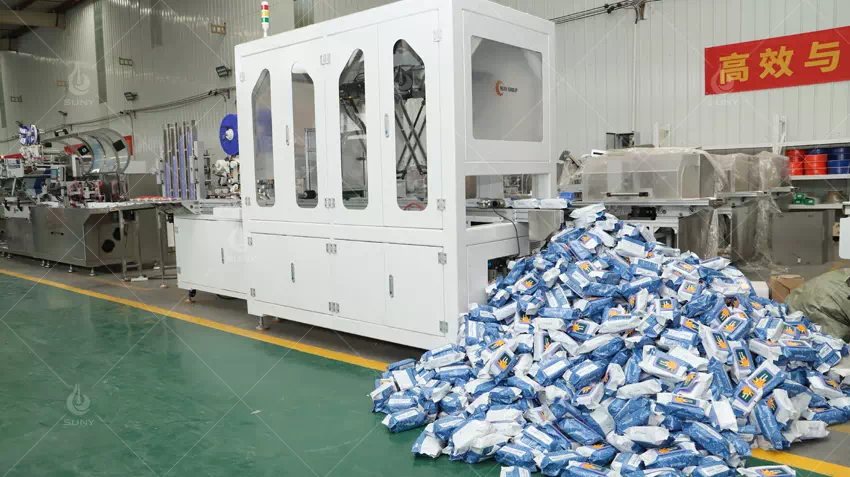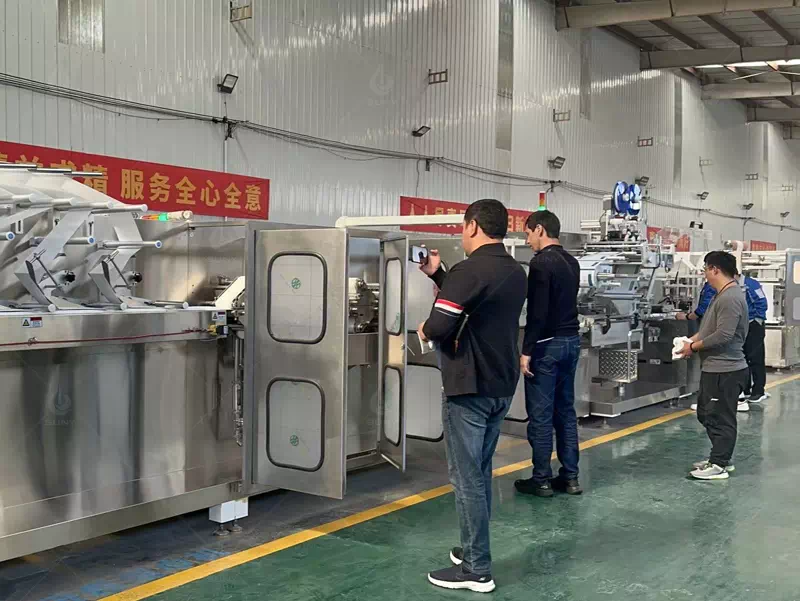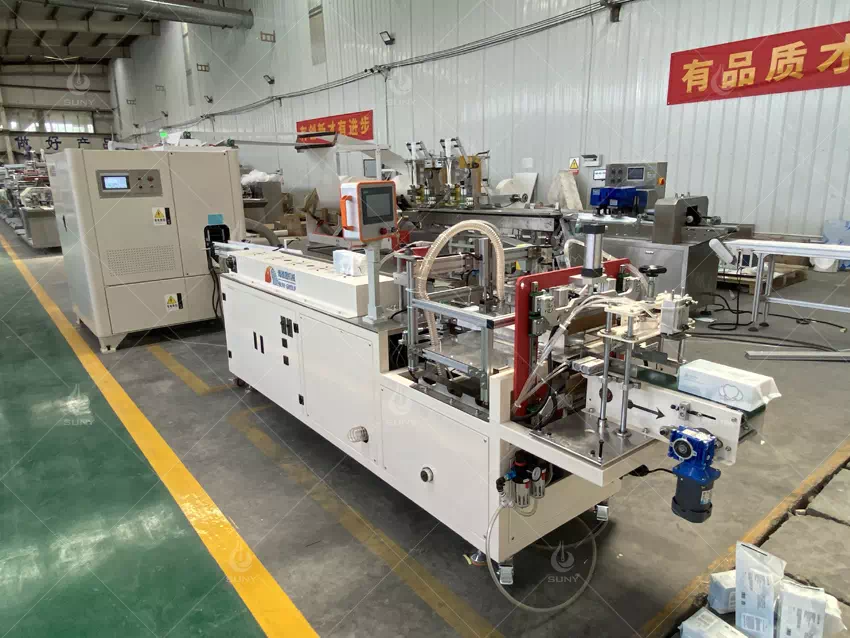Wet Wipes for Babies Production Line
With the increasing demand for baby care products, baby wipes have become an indispensable childcare product for modern families with their convenient and efficient cleaning function. In order to meet the market demand, the production line of baby wipes is constantly upgraded and optimized. In this paper, we will discuss the composition of the production line of baby wipes, the production process and its importance in ensuring product quality and safety.

1. Market demand for baby wipes
Baby wipes have become an important tool for parents to clean their babies when they go out because of their convenient use. Whether at home or traveling, wipes can quickly and effectively clean baby’s skin, hands and other sensitive areas. In addition, modern consumers are more and more concerned about the composition and safety of products, so high-quality baby wipes are gradually becoming the mainstream of the market.
2. Composition of baby wipes production line
The production line of baby wipes usually consists of several links, each of which is crucial to ensure the quality and safety of the product:
Raw material preparation: The first step of the production line is to select high-quality nonwoven fabrics and formulations. The quality of the nonwoven fabric directly affects the softness and durability of the wipes, while the wipes’ formula needs to be gentle and safe for babies’ delicate skin.
Wipes soaking: At this stage, the prepared nonwoven is soaked in a specially formulated cleansing solution. This process needs to be precisely controlled to ensure that each wipe absorbs enough cleaning solution evenly.
Cutting and Folding: After the wipes are soaked, they are cut and folded. Advanced cutting equipment cuts the wipes to the appropriate size according to demand, while ensuring that the edges are neat and not easily torn.
Packaging: After cutting, the wipes are automatically packaged to ensure product hygiene and freshness. Modern packaging equipment usually adopts an air-sealed design to prevent the wipes from losing moisture during storage.
3. Quality control during production
Quality control is crucial in the production process of baby wipes. The production line should be equipped with rigorous quality inspection processes, including:
Raw material inspection: Ensure that all raw materials comply with national safety standards and industry norms. Supplier selection is also critical and preference should be given to certified manufacturers.
Online monitoring: During the production process, real-time monitoring of the humidity, thickness of the wipes and PH value of the cleaning solution is carried out to ensure that each batch of products meets the standards.
Finished product sampling: After production is completed, finished products are sampled and inspected, including bacterial testing and allergen testing, to ensure that the products are safe and harmless.
4. Environmental protection and sustainability
Modern production lines are increasingly focusing on environmental protection and sustainable development. Many companies are beginning to use biodegradable materials and environmentally friendly packaging to minimize their impact on the environment. In addition, the production process also minimizes waste generation and achieves sustainable development by recycling resources.
The production line of baby wipes is an important part of ensuring product quality and safety. Through strict raw material selection, sophisticated production processes and effective quality control, companies are able to produce high quality baby wipes to meet market demand. As consumers pay more attention to the safety and environmental protection of baby care products, the future production line of baby wipes will pay more attention to innovation and sustainable development to provide better protection for the healthy growth of babies.
CONTACT US
If you have any requirement or suggestion, please fill in the form and send to us, thanks! Email:sunymachine@gmail.com Whatsapp:+8613674945231



